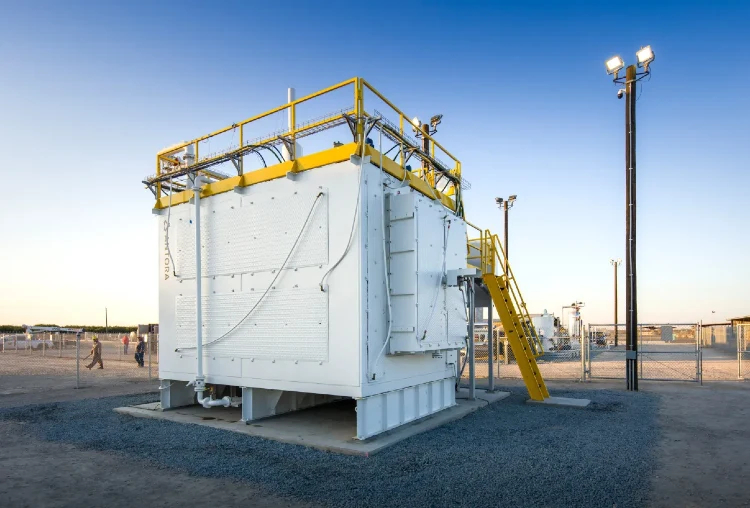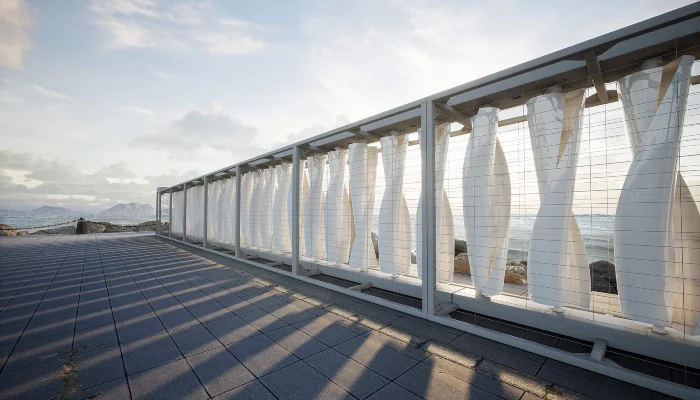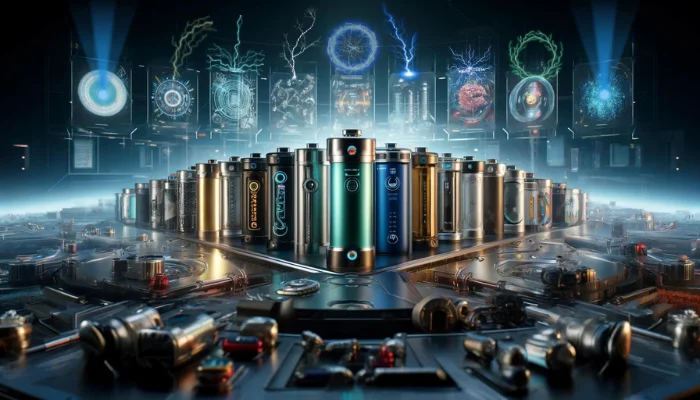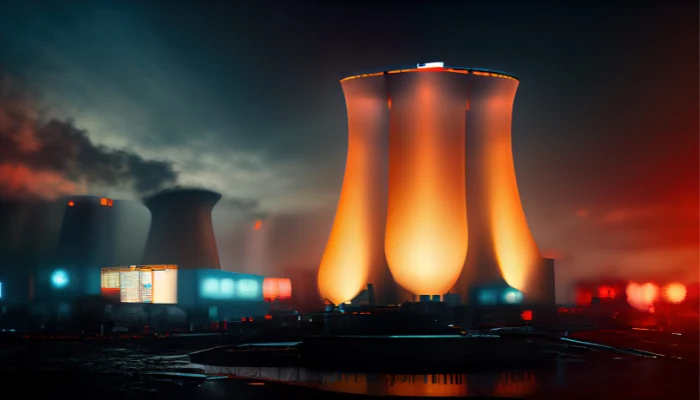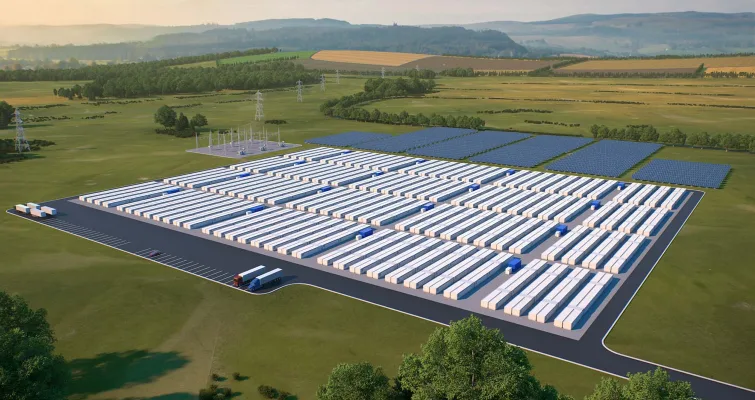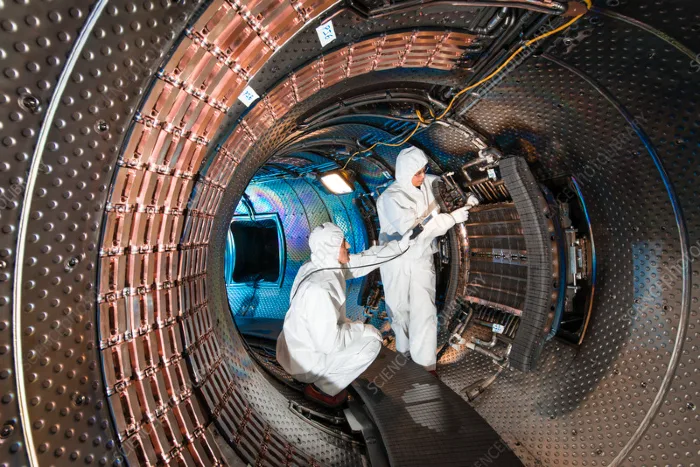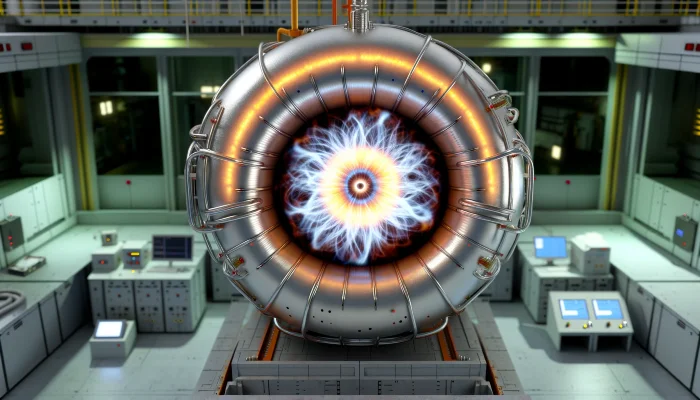In the annals of human history, an ingenious Homo sapien once moved a rock closer to the fire for warmth, unwittingly laying the foundation for the concept of thermal batteries. Fast-forward over a million years, and as our world grapples with the urgent need to transition away from fossil fuels to avert climate catastrophe, this age-old idea is experiencing a remarkable resurgence. Today, hot rocks aren’t only hotter than ever, both literally and figuratively, but they also hold the promise of transforming our energy landscape.
Standing next to a thermal battery resembling a small building, Andrew Ponec exclaims, “(The rocks) in the box right now are about 1,600 degrees Celsius,” which translates to nearly 3,000 degrees Fahrenheit, “Hotter than the melting point of steel.” What sets these scorching rocks apart isn’t the result of burning tons of coal or gas, but rather harnessing the power of sunlight through thousands of photovoltaic solar panels enveloping his prototype, located west of Fresno.
Ponec, along with his startup Antora Energy, envisions a future where a burgeoning multi-trillion-dollar energy storage industry relies on harnessing the sun’s energy to heat rocks to temperatures capable of powering the world’s largest industrial facilities. In his words, “People sometimes feel like they’re insulting us by saying, ‘Hey, that sounds really simple,’ and we say, ‘No, that’s exactly the point.'”
Ponec’s journey into the realm of clean energy began during his school days, when he dabbled with photovoltaics in his parents’ garage. Later, he decided to drop out of Stanford to embark on building grid-scale solar plants. Upon returning to complete his degree, Ponec realized that while solar and wind energy have been instrumental in bolstering battery technologies for homes and electric vehicles, the urgent need lay in cleaning up the fuel sources responsible for industrial heat—essential for producing everything from baby food to steel. The critical challenge in the industrial sector is that energy demands often persist around the clock, and heavy industry has yet to fully harness the benefits of renewable energy due to its continuous operation.

While the term “battery” typically conjures images of chemical cells powering cars and electronic devices in today’s world, hot rocks, tracing their roots to the 1800s with Cowper stoves, currently store ten times more energy than lithium-ion batteries worldwide. These colossal structures, often found in smelting plants, consist of towering stacks of bricks that capture wasted heat from blast furnaces, gradually heating to nearly 3,000 degrees Fahrenheit, and subsequently supplying over 100 megawatts of heat energy for approximately 20 minutes.

This process can be repeated up to 24 times daily for 30 years. Antora, among other startups, is actively exploring various types of rocks in insulated containers or molten salt in cylinders to determine the most efficient combination. Ponec explains their fascination with graphite, the same material found in pencils and used in aluminum and steel smelting, due to its ability to retain an astonishing amount of heat, even glowing hotter than the sun.

Crucially, these traditional furnaces lacked a method for extracting the stored heat efficiently. Ponec’s innovation includes creating cavities and gaps in the carbon that enable light from deep within the system to emit outward. Insulated doors can open and close to control the release of this light, which not only generates steam but also provides significantly higher-temperature heat, suitable for industries like cement and steel.
Antora Energy has successfully secured $80 million in seed funding, including investment from Bill Gates. However, they face competition from Rondo, another Bay Area startup that employs abundant refractory brick, a cost-effective alternative to carbon. Rondo has garnered even more financial support than Antora and is currently providing commercial power to an ethanol plant in California with its first battery.
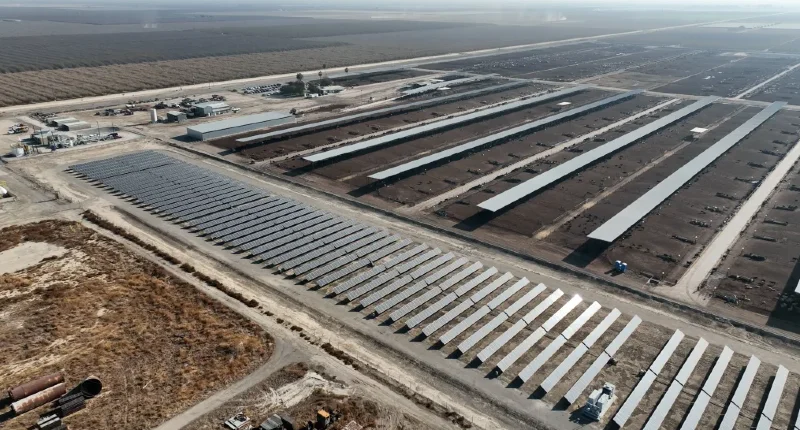
The transition to a carbon-free world necessitates an astounding 240 terawatt-hours of energy storage—a figure exceeding 340 times the storage capacity achieved with lithium-ion batteries in 2022. John O’Donnell, CEO of Rondo, predicts that over half of this new capacity will be delivered through heat batteries, primarily due to the readily available raw materials. By connecting their factories to as many thermal batteries as needed, manufacturers can avoid long waits for grid connections and upgrades.
In light of these financial considerations, the saying “dumb as a box of rocks” may need a revision in the context of this industrial revolution. O’Donnell aptly remarks, “Exciting technologies are great if you’re a venture capitalist and death if you’re a banker. And it is the bankers and the infrastructure finance folks that like this whole class of technologies. It’s not particularly sexy, but that’s a really good thing.”
Jesse Jenkins, a professor of engineering at Princeton University, echoes the potential of the hot rocks model. He believes it holds a distinct advantage over chemical batteries, which can store power but not heat. Jenkins asserts that technologies that offer both heat and power storage are well-positioned to play a pivotal role in scaling up industrial sectors, whereas pure-play electrochemical battery companies face make-or-break challenges.
More To Discover
As the CEOs of Antora and Rondo returned from the COP28 climate summit in Dubai, where Middle East petrostates influenced global commitments to ending fossil fuels, they carried with them a sense of optimism. The interest in their ideas and other clean energy breakthroughs rekindled their belief that the tools required for decarbonization are already at our disposal. The transition isn’t a matter of possibility but inevitability, a sentiment shared by many in the fossil fuel industry behind closed doors.
In essence, the resurgence of hot rocks as a renewable energy source symbolizes our capacity to innovate and reimagine the future of energy, propelling us closer to a cleaner, sustainable world.







